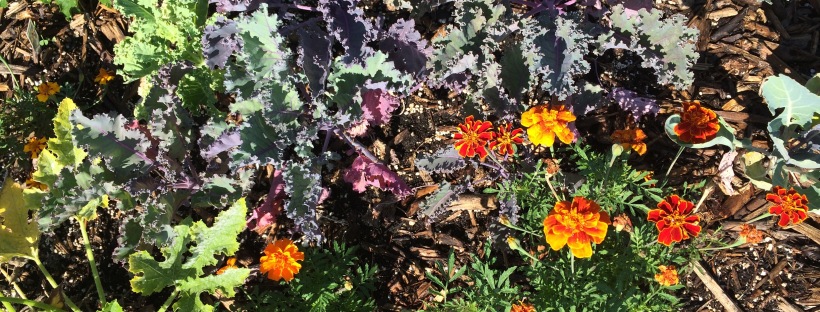 Carleton College students Vayu Maini Rekdal and Emily Pence started STEAM Chefs in 2011 with the aim of empowering and inspiring youth through cooking. The program was originally called the “Young Chefs Program” at Carleton College. At the program’s outset, students at the middle school in Northfield, MN, got together with volunteers from Carleton College to explore the basics of nutritious and delicious cooking. The weekly classes gave hands-on experience with culinary techniques and ingredients; whether focused on salsa-making or flavor pairing, each class represented a unique opportunity for students to build not only culinary skills and creativity, but also important relationships with college-aged role models.
Carleton College students Vayu Maini Rekdal and Emily Pence started STEAM Chefs in 2011 with the aim of empowering and inspiring youth through cooking. The program was originally called the “Young Chefs Program” at Carleton College. At the program’s outset, students at the middle school in Northfield, MN, got together with volunteers from Carleton College to explore the basics of nutritious and delicious cooking. The weekly classes gave hands-on experience with culinary techniques and ingredients; whether focused on salsa-making or flavor pairing, each class represented a unique opportunity for students to build not only culinary skills and creativity, but also important relationships with college-aged role models.
The program evolved alongside these relationships. As students quickly grew more confident in their own cooking abilities, we opened up for greater freedom in the kitchen, creating an environment where every failure was regarded as an opportunity to learn something new. These explorations fostered a deep engagement with cooking and a profound curiosity for seeking explanations behind everyday kitchen phenomena. What happens if you add more salt to cabbage? Mustard to oil and vinegar? Why does bread rise? In their quest to create delicious foods, students also sought to understand the principles governing the edible outcomes. Students were hungry for the science that supported the cooking.
Science and cooking are beautifully interconnected. Cooking was perhaps the first form of science that humans explored, and is the science that billions of people around the world use every day. Cooking hides a tremendous wealth of scientific concepts; the making of a salad dressing can illustrate liquid miscibility; the baking of bread can highlight the process of respiration, to name a few examples. Beyond illustrating scientific concepts, cooking embodies the scientific method as practiced by scientists; cooking requires people to make predictions, collect observations, and draw conclusions on the road to discovery. However, just as cooking can teach us something about science, science can also teach us something about cooking. A fundamental understanding of kitchen science opens new dimensions of texture, flavor, and sensations.
The close interrelationship between science and cooking lies at the core of the STEAM Chefs program today. The program has grown from a local cooking program in Northfield, MN, to a global organization that empowers students in the kitchen, classroom, and beyond. STEAM stands for Science, Technology, Engineering, Art, Math. Now, we develop free open-access lesson plans and teaching resources for STEAM education through the universal language of food, and support educators to implement our curriculum in diverse programs across the globe.
Whether working with Somali immigrants in rural Minnesota, NYC public school teachers, or Inner-city students in Boston, we have observed increased confidence peoples’ science and cooking abilities after participating in the program. These experiences have confirmed how cooking can engage students with food and science in unique ways, how cooking encourages students to use all their senses as they cook their way into a better understanding of the natural world. In a similar vein, our work has also underlined the versatility of our program: it can be adopted as an enriching academic after school program, as a supportive measure to the standard science curriculum, or just as a one-time activity, with many more possibilities. Whatever the format, we believe that our model has the potential to engage students with the food they eat and the scientific topics they learn in the classroom.
Overall, perhaps our greatest lessons belong in less tangible realms. In our work with STEAM Chefs, we have realized how cooking can connect us with the natural world and our inner creative spirits, but we have also learned how it can bridge new relationships between individuals. When participating in the program, students ask us not just about cooking temperatures and scientific measurements, but also about life in general. “How does one become a professional chef?” “If I want to be a scientist, what should I focus on in school?” “What is college like?” Science in the kitchen brings cooking to life in a unique way, adding new dimensions to a universal language capable of facilitating relationships between individuals of different backgrounds, ages, and passions.
